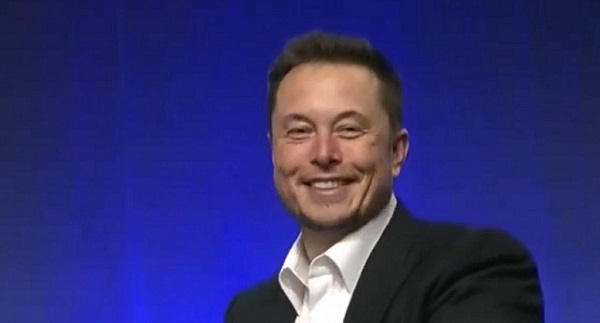Business
Given changes to U.S. policy under Trump, Canada needs to rethink its environmental policies

From the Fraser Institute
By reforming federal climate policy, Canadians could benefit from increased prosperity and increased competitiveness with the U.S., finds a new study published by the Fraser Institute, an independent, non-partisan public policy thinktank.
“As we approach 2030 with no prospect of meeting Canada’s Paris targets, instead of doubling down on costly and misguided policies that will result in continued failure, the federal government should embark on a new course that offers hope for modest climate successes without sacrificing living standards and prosperity,” said Ross McKitrick, Fraser Institute senior fellow and author of Reforming Canada’s Environment Ministry and Federal Environmental Policy.
The study finds that as a result of the new Trump administration quickly reforming U.S. climate policy, Canada risks a widening competitiveness gap with the U.S.
The study identifies five sensible reforms to Canadian climate policy that would improve competitiveness, achieve realistic emission reductions without compromising economic growth and prosperity:
1. Set realistic timelines for achievable improvements in emission intensity.
2. Eliminate the many costly intrusions of climate policy into unrelated policy areas, from banking to homebuilding to competition policy.
3. Make the federal environment ministry an effective and trustworthy source of unbiased, reliable data on Canada’s environment and climate.
4. Push back against the mission creep in multilateral organizations, especially the Intergovernmental Panel on Climate Change.
5. Extinguish in law all forms of climate liability in order to stop nuisance activist lawsuits.
“The federal government’s climate agenda has adversely affected Canadians’ living standards and the country’s prospects for future income growth,” McKitrick said. “Given all the changes occurring in the U.S., now is an appropriate time to reform federal climate policy to be more effective, and to better serve the needs of Canadians.”
Reforming Canada’s Environment Ministry and Federal Environmental Policy
- With the start of a new Trump administration in the US and the prospects of a change in government in Canada, it is time for a reassessment of how Canada manages its environment and climate change portfolios.
- The US has swung dramatically in the direction of promoting energy abundance and downplaying or setting aside climate goals. Canada risks a widening competitiveness gap with the US if we do not respond appropriately.
- This study outlines key reforms to federal climate policy and the structure of the federal environment ministry, including:
- Eliminating the current national greenhouse gas (GHG) emissions targets and replacing them with more realistic ones that can be achieved without compromising economic growth and industrial competitiveness.
- Eliminating the many costly regulatory intrusions of climate policy into unrelated areas, from banking to homebuilding to competition policy, and focusing solely on pursuing cost-effective GHG emissions reductions.
- Transforming the federal environment ministry into an effective and trustworthy source of unbiased, reliable data on Canada’s environment and climate, rather than relying heavily on speculative climate models.
- Pushing back against the mission creep in multilateral organizations, especially the Intergovernmental Panel on Climate Change, and working with other like-minded countries, such as the United States, to return these organizations to their historical mandates.
- Extinguishing in law all forms of climate liability associated with greenhouse gas emissions to prevent activist-driven nuisance lawsuits.
Business
Bill Gates Gets Mugged By Reality


From the Daily Caller News Foundation
You’ve probably heard by now the blockbuster news that Microsoft founder Bill Gates, one of the richest people to ever walk the planet, has had a change of heart on climate change.
For several decades Gates poured billions of dollars into the climate industrial complex.
Some conservatives have sniffed that Bill Gates has shifted his position on climate change because he and Microsoft have invested heavily in energy intensive data centers.
AI and robotics will triple our electric power needs over the next 15 years. And you can’t get that from windmills.
What Bill Gates has done is courageous and praiseworthy. It’s not many people of his stature that will admit that they were wrong. Al Gore certainly hasn’t. My wife says I never do.
Although I’ve only once met Bill Gates, I’ve read his latest statements on global warming. He still endorses the need for communal action (which won’t work), but he has sensibly disassociated himself from the increasingly radical and economically destructive dictates from the green movement. For that, the left has tossed him out of their tent as a “traitor.”
I wish to highlight several critical insights that should be the starting point for constructive debate that every clear-minded thinker on either side of the issue should embrace.
(1) It’s time to put human welfare at the center of our climate policies. This includes improving agriculture and health in poor countries.
(2) Countries should be encouraged to grow their economies even if that means a reliance on fossil fuels like natural gas. Economic growth is essential to human progress.
(3) Although climate change will hurt poor people, for the vast majority of them it will not be the only or even the biggest threat to their lives and welfare. The biggest problems are poverty and disease.
I would add to these wise declarations two inconvenient truths: First: the solution to changing temperatures and weather patterns is technological progress. A far fewer percentage of people die of severe weather events today than 50 or 100 or 1,000 years ago.
Second, energy is the master resource and to deny people reliable and affordable energy is to keep them poor and vulnerable – and this is inhumane.
If Bill Gates were to start directing even a small fraction of his foundation funds to ensuring everyone on the planet has access to electric power and safe drinking water, it would do more for humanity than all of the hundreds of billions that governments and foundations have devoted to climate programs that have failed to change the globe’s temperature.
Stephen Moore is a co-founder of Unleash Prosperity and a former Trump senior economic advisor.
Automotive
Elon Musk Poised To Become World’s First Trillionaire After Shareholder Vote


From the Daily Caller News Foundation
At Tesla’s Austin headquarters, investors backed Musk’s 12-step plan that ties his potential trillion-dollar payout to a series of aggressive financial and operational milestones, including raising the company’s valuation from roughly $1.4 trillion to $8.5 trillion and selling one million humanoid robots within a decade. Musk hailed the outcome as a turning point for Tesla’s future.
“What we’re about to embark upon is not merely a new chapter of the future of Tesla but a whole new book,” Musk said, as The New York Times reported.
Dear Readers:
As a nonprofit, we are dependent on the generosity of our readers.
Please consider making a small donation of any amount here.
Thank you!
The decision cements investor confidence in Musk’s “moonshot” management style and reinforces the belief that Tesla’s success depends heavily on its founder and his leadership.
Tesla Annual meeting starting now
https://t.co/j1KHf3k6ch— Elon Musk (@elonmusk) November 6, 2025
“Those who claim the plan is ‘too large’ ignore the scale of ambition that has historically defined Tesla’s trajectory,” the Florida State Board of Administration said in a securities filing describing why it voted for Mr. Musk’s pay plan. “A company that went from near bankruptcy to global leadership in E.V.s and clean energy under similar frameworks has earned the right to use incentive models that reward moonshot performance.”
Investors like Ark Invest CEO Cathie Wood defended Tesla’s decision, saying the plan aligns shareholder rewards with company performance.
“I do not understand why investors are voting against Elon’s pay package when they and their clients would benefit enormously if he and his incredible team meet such high goals,” Wood wrote on X.
Norway’s sovereign wealth fund, Norges Bank Investment Management — one of Tesla’s largest shareholders — broke ranks, however, and voted against the pay plan, saying that the package was excessive.
“While we appreciate the significant value created under Mr. Musk’s visionary role, we are concerned about the total size of the award, dilution, and lack of mitigation of key person risk,” the firm said.
The vote comes months after Musk wrapped up his short-lived government role under President Donald Trump. In February, Musk and his Department of Government Efficiency (DOGE) team sparked a firestorm when they announced plans to eliminate the U.S. Agency for International Development, drawing backlash from Democrats and prompting protests targeting Musk and his companies, including Tesla.
Back in May, Musk announced that his “scheduled time” leading DOGE had ended.
-

 Business2 days ago
Business2 days agoCarney budget continues misguided ‘Build Canada Homes’ approach
-

 espionage2 days ago
espionage2 days agoU.S. Charges Three More Chinese Scholars in Wuhan Bio-Smuggling Case, Citing Pattern of Foreign Exploitation in American Research Labs
-

 Business2 days ago
Business2 days agoCarney budget doubles down on Trudeau-era policies
-

 Business19 hours ago
Business19 hours agoBill Gates Gets Mugged By Reality
-

 COVID-192 days ago
COVID-192 days agoCrown still working to put Lich and Barber in jail
-

 Alberta16 hours ago
Alberta16 hours agoAlberta Announces Members of Class Size and Complexity Committee
-

 Alberta16 hours ago
Alberta16 hours agoTell the Province what you think about 120 km/h speed limit on divided highways
-

 Business1 day ago
Business1 day agoHere’s what pundits and analysts get wrong about the Carney government’s first budget











